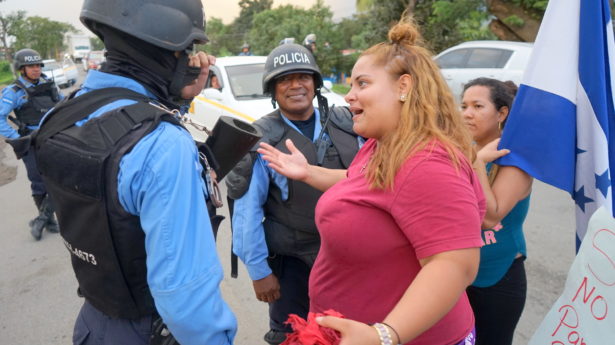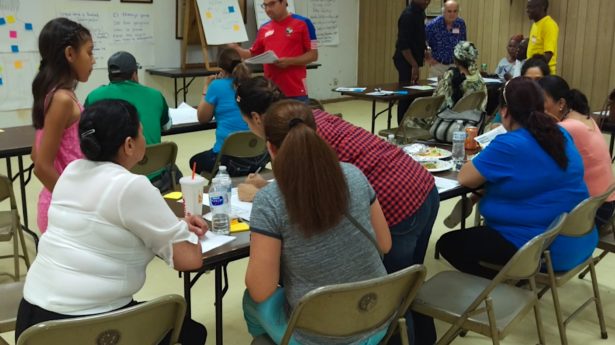The Unitarian Universalist Service Committee advances human rights through grassroots collaborations.
We Can Correct False Claims about Immigration
By on November 1, 2018
Misinformation surrounding U.S. immigration is rampant in the news and social media. President Trump has fueled these claims, sending over 5,000 troops to the southern U.S. border to bar a caravan of asylum-seekers from entering the United States, continuing his attack on legal immigration with plans to end birthright citizenship, and sometimes simply making up facts that support a racist and xenophobic anti-immigrant agenda.
We must counter the lies and false claims by understanding how U.S. policy increases instability throughout the region and drives forced migration. Read on to learn more about what’s happening at the U.S.-Mexico border and beyond, then share these graphics on social media to help change the narrative.
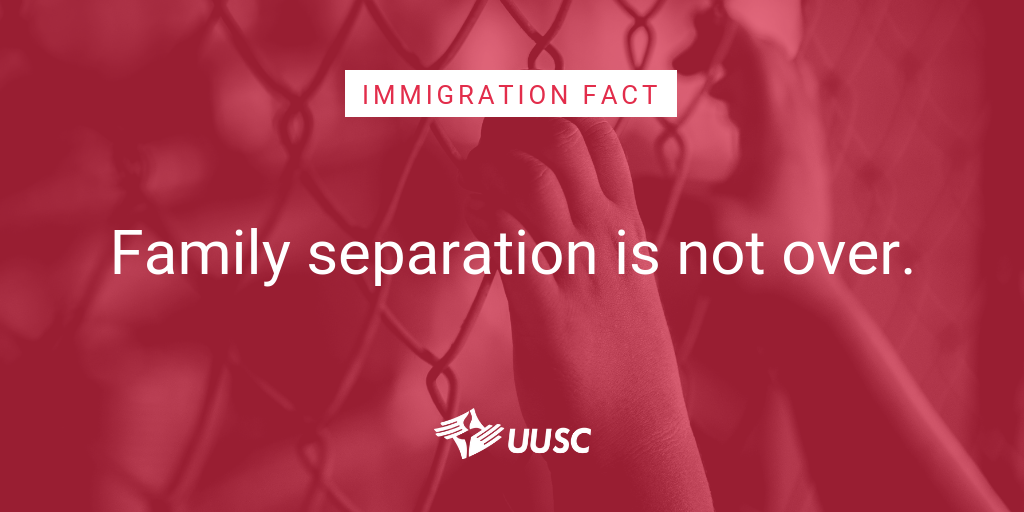
UUSC partner RAICES confirms family separation hasn’t ended and that grandparents and older siblings traveling with minors are regularly separated. Additionally, the Trump administration is expected to launch “Family Separation 2.0” in November 2018, forcing parents to choose between family detention or releasing their child to a family member in the United States or foster care. Source: Washington Post.
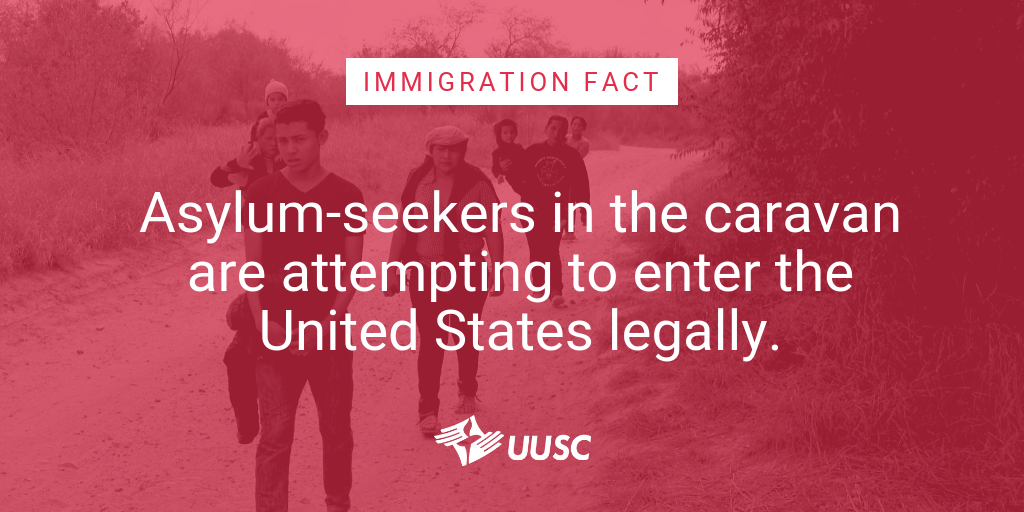
Regardless of how or with whom you travel, you have an internationally-protected right to seek asylum. The United States and Mexico have agreed that they will never expel a person from their territory who is at risk of persecution. U.S. law also protects the right to asylum, although the Trump administration continues to curtail access to this process. Source: UN 1951 Convention, U.S. Code.
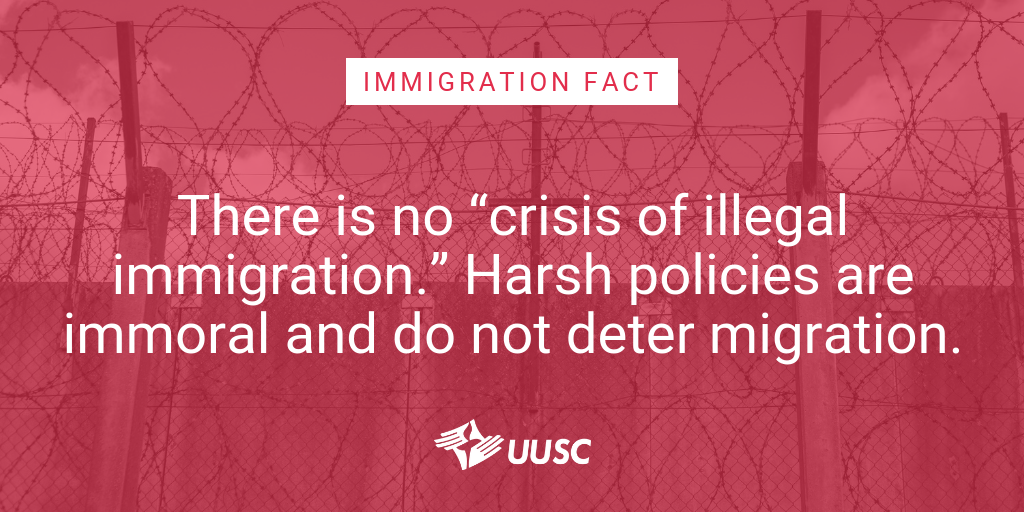
While it’s true there has been an upturn in recent months in the number of people arriving at the U.S-Mexico border, the United States is actually in a historically low period of migration at the southern border overall, compared to recent decades. Trying to block refugees from seeking safety is not only a grave human rights violation, but these policies do little to discourage people who must flee violence and instability in their home countries. Source: New York Times, U.S. Customs & Border Protection.
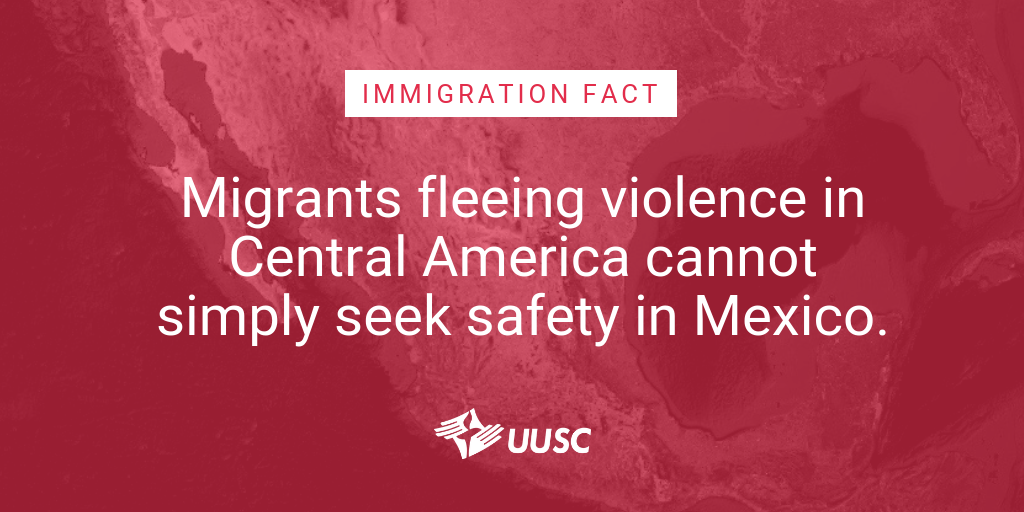
During a recent partner visit to Mexico, UUSC staff heard multiple accounts of gang members attempting to pursue migrants into shelters in Mexico, and an estimated 99% of crimes against migrants in Mexico go unpunished. Additionally, Mexico’s asylum system is underfunded and overburdened—only 13% of asylum petitions received in 2017 were approved. Source: Latin American Working Group, Washington Office on Latin America.
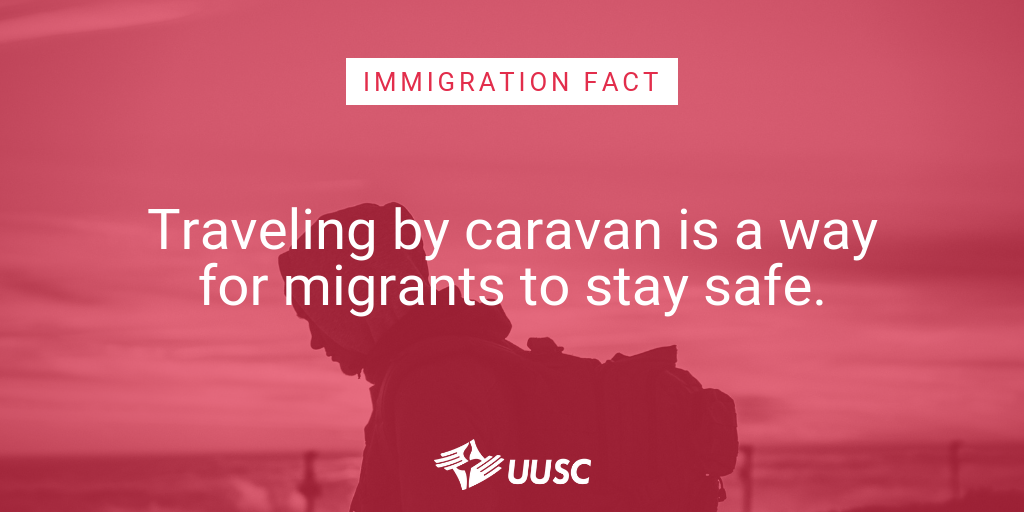
Caravans offer an alternative way to travel that provide mutual protection, while avoiding the expensive and dangerous smuggling networks. Coyotes often charge migrants from Central America between $7,000 and $10,000 to take them to the United States. Refusing to pay this fee can lead to migrants being threatened or murdered by organized crime. Source: Public Radio International.
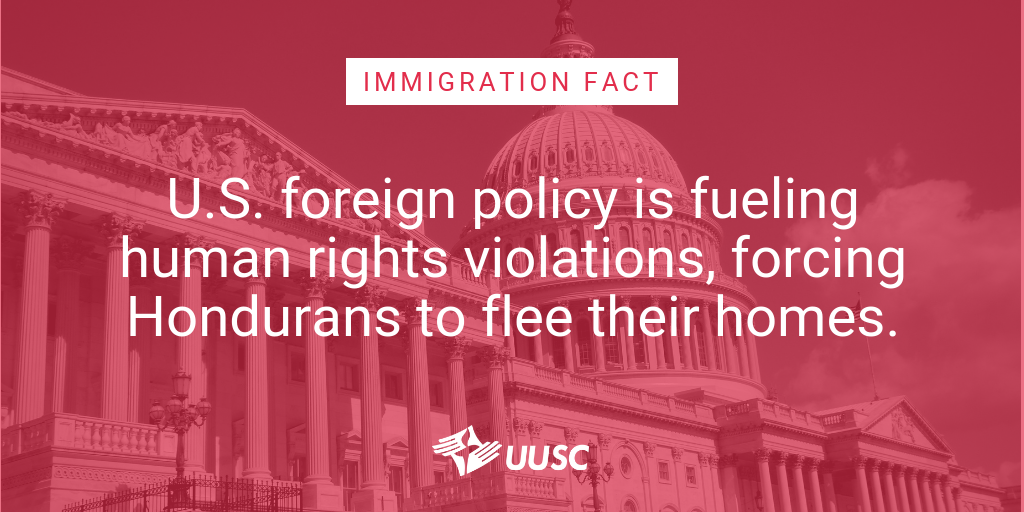
The U.S. government is actively fueling a humanitarian crisis by supporting a violent and repressive government in Honduras, while the Trump administration’s increasingly restrictive and punishing policies limit legal migration to the United States. Honduran security forces, which receive U.S. aid, are directly implicated in human rights violations, including excessive force against protesters and attacks on human rights defenders. These violations, and lack of state protection from other forms of violence, force people to flee the country. Source: UUSC.
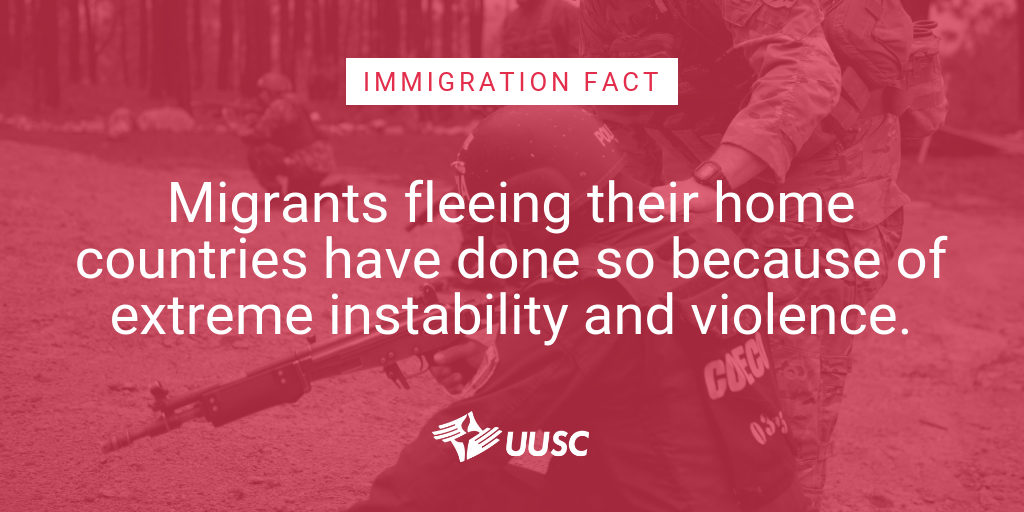
People don’t undertake an extremely dangerous journey from Central America to Mexico or the United States and leave their homes on a whim; they leave because staying is not an option. In Honduras, security forces are committing human rights violations including torture, beatings, and other extreme ill-treatment with impunity. “Yes, many people on the caravan are poor and hungry, but the reason people truly had to leave was almost always violence and the extortion fees to organized crime that people can’t pay. If you ask people why they are leaving many will say ‘poverty’ but if you listen to their story it’s about violence.” — Miroslava Cerpas Hernandez from the human rights organization CIPRODEH in Honduras. Source: UUSC.
